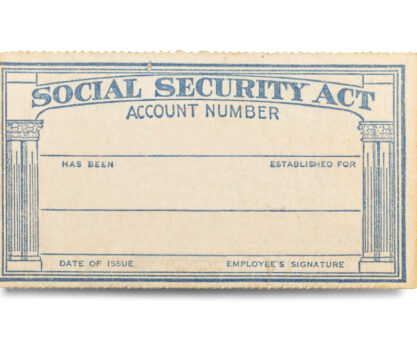A previous article discussed why federal retirees need an emergency fund and how it can help protect your Thrift Savings Plan (TSP) from unplanned withdrawals. Ideally, the best time to start an emergency fund is while you’re still working. Once you’re living on a fixed income in retirement, saving for emergencies may be more challenging. Here are some basic tips to help you get started right now.
Start With A Smaller Goal
Of course, in the years leading up to your federal retirement, contributing funds to your TSP is a top priority. However, if you start by setting smaller monthly goals for your emergency fund it shouldn’t be a struggle. All you have to do to save $150 per month is cut your spending by $5 per day. That’s doable, right?
Choose A Bank That Offers A Sign-Up Bonus
There are several banks that offer cash bonuses for new customers. You can use the additional cash to jump-start your emergency fund. Also, consider setting up a savings account with an online bank that may offer a better interest rate than a brick-and-mortar bank. And don’t forget to keep it simple by setting up automatic, direct deposits.
“You’ll thank yourself for thinking ahead when life throws you a financial curveball in retirement.”
Save Unexpected Cash Windfalls For Emergencies
From cash birthday gifts and inheritances to larger-than-expected tax refunds, make an effort to save a portion of any windfall for future emergencies. And, when you get a pay raise, give your emergency fund a raise, too. Emergency savings can prevent you from withdrawing from your TSP or, worse, using a high-interest credit card to cover an unexpected expense. You’ll thank yourself for thinking ahead when life throws you a financial curveball in retirement.
Cut Your Non-Essential Spending To Save More
Take a long hard look at non-essential spending habits that you can easily cut. Review your recent credit card and checking account statements to see if you’re paying for apps or services you rarely use. You may even find you were automatically signed up to pay for a streaming service after the free trial expired. Once you make these spending cuts, you can divert the extra money to your emergency fund.
Only Use The Fund For True Emergencies
Your emergency fund should only be used for unexpected expenses like costly home and car repairs not a family vacation in an exotic locale. When you do need to withdraw money for a true emergency, make sure to replenish your account balance ASAP.
To learn about other ways to build an emergency fund for retirement, connect with an FRC® trained advisor.



























